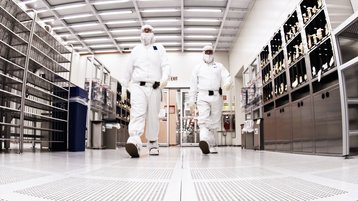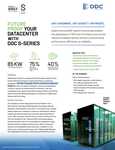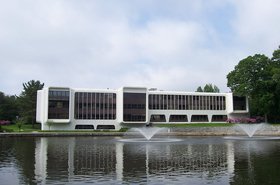TSMC and Intel have discussed a preliminary agreement regarding a proposed joint venture (JV) that would see the Taiwanese chip maker operate Intel’s chip fabs.
According to a report from The Information, under the terms of the JV, Intel and other US semiconductor companies would hold the majority of shares in the company, with TSMC taking a 20 percent stake in exchange for sharing its chipmaking and training methods with Intel.
Despite the claims, the report noted that deliberations were ongoing and that no final agreement has been reached. Citing two people involved with the discussions, The Information said concerns had also been raised about further layoffs at Intel that might result from the JV, and that the proposal could still be met with resistance from both Intel and TSMC.
Furthermore, both TSMC and the Taiwanese government have previously denied reports that discussions had been had about investing in Intel.
Reuters reported in March that TSMC had sought to engage Nvidia, AMD, Qualcomm, and Broadcom in talks about a potential joint venture to operate Intel’s foundry division, noting that TSMC was seeking a partner in order to ensure it doesn’t own more than 50 percent of Intel’s foundry operations.
Following those claims, Digitimes Asia reported that TSMC board member Paul Liu publicly denied claims that the chipmaker was considering acquiring Intel’s foundry business. That same month, TSMC board member and Taiwanese government Minister Chin-Ching Liu told lawmakers there had been no investment or cooperation talks between TSMC and Intel.
The Information added that the deal was initiated by the White House in an effort to “revitalize Intel.” However, although previous reports from February 2025 which claimed Broadcom and TSMC were weighing up plans to acquire some of Intel’s assets were also originally cited as resulting from a request from Trump administration officials, it later emerged that President Trump was unlikely to approve of a foreign company operating Intel’s US factories, given his repeated criticism of Taiwan over the issue of chip manufacturing.
Trump has previously claimed that Taiwan “stole [the US’] chip business” and now accounts for “about 98 percent of the chip business” – Taiwanese chip companies produce about 60 percent of the world's chips, but more than 90 percent of leading-edge chips, including Nvidia's data center GPUs – pledging to “return production” of computer chips and semiconductors to the United States by imposing a “100 percent tax” on their overseas production.
While specific semiconductor tariffs have still yet to be introduced, this week President Trump announced he was placing tariffs of 32 percent on Taiwan, though the White House said semiconductors will be exempt from this.
In response to Trump’s announcement, the Taiwanese government described the planned tariffs as “unreasonable” and said it would seek talks with Washington. TSMC has already pledged to spend $100 billion on chip manufacturing in the US and has previously been told by the President that it will be exempt from levies as a result of its investment.
Intel looking to “turn a new page”
Intel decoupled its Foundry Services business from the company last year, with then-CEO Gelsinger telling staff in a September 2024 memo that Intel Foundry would now operate as “an independent subsidiary inside of Intel” in order to provide “external foundry customers and suppliers with clearer separation and independence from the rest of Intel.”
Gelsinger ‘retired’ from Intel in December 2024, and in January 2025, the company posted its third consecutive quarterly loss, with fourth-quarter revenue down seven percent year-on-year (YoY) to $14.3 billion, whilst full-year revenue declined by two percent YoY to $53.1 billion.
In March 2025, Intel appointed former director Lip-Bu Tan as its new CEO. During his first public speech since taking over the role, Tan told attendees at this week’s Intel Vision event that the company “fell behind on innovation” and has “been too slow to adapt and to meet your needs."
“You deserve better, and we need to improve,” he said, adding that he was “not happy” with Intel’s current position.
“I know that you are not happy either. I have heard the feedback loud and clear. It's time to turn a new page," Tan said.







